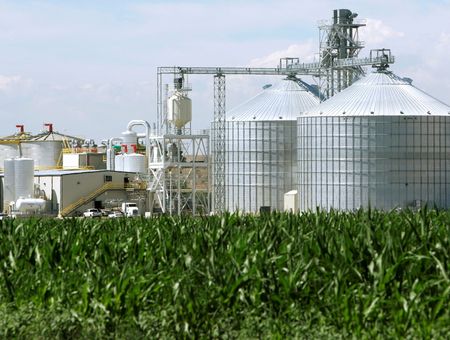 1
1 1
1

By Leah Douglas
(Reuters) – POET LLC, the world’s largest ethanol producer, said it hopes to meet some of its climate goals early as a result of a new partnership it announced this week with a Midwest carbon capture and storage (CCS) pipeline.
POET LLC’s decision to partner with Navigator CO2 Ventures is a major boost for the pipeline project, which aims to capture greenhouse gases from Midwest ethanol processing plants and transport it to underground storage sites.
POET had pledged in 2021 to make its biofuels 70% less emissions intensive than gasoline by 2030. But the Navigator partnership means participating plants will achieve 75% lower emissions, said President Jeff Lautt.
The pipeline “would get more than half of our plants to that goal early,” Lautt said.
Navigator would pipe some 5 million metric tons of carbon dioxide from 18 POET plants across Iowa, Nebraska, and South Dakota to underground storage sites in Illinois and will be operational by 2025, according to a company statement.
The ethanol industry claims its fuel is already nearly 50% lower in emissions than gasoline. But recent research has suggested ethanol could actually emit more carbon than gasoline due to tilling land under to grow corn.
Opponents along the path of the pipeline in the Midwest fear they could lose land under eminent domain law, and that their crop yields could suffer during construction. [L1N2UB257]
In Iowa, where Navigator would run the most pipeline miles, 18 of the 36 counties on its proposed route have filed opposition to the project with the Iowa Utilities Board (IUB), according to a Reuters review of the IUB docket.
Some farmers who oppose the pipeline and sell to POET are angered with the decision, saying the company had told them they would not seek a pipeline partnership.
“We’re disgusted and disappointed,” said Kim Junker, an Iowa POET supplier whose farm is along the Navigator route.
(Reporting by Leah Douglas; Editing by David Gregorio)